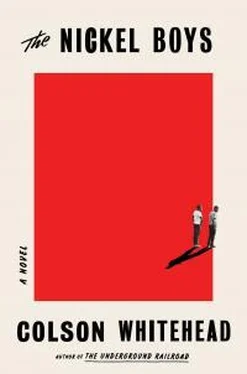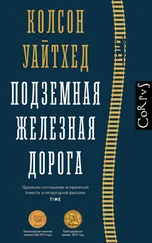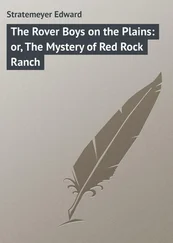Колсон Уайтхед - The Nickel Boys
Здесь есть возможность читать онлайн «Колсон Уайтхед - The Nickel Boys» весь текст электронной книги совершенно бесплатно (целиком полную версию без сокращений). В некоторых случаях можно слушать аудио, скачать через торрент в формате fb2 и присутствует краткое содержание. Год выпуска: 2019, Издательство: Penguin Random House LLC, Жанр: roman, на английском языке. Описание произведения, (предисловие) а так же отзывы посетителей доступны на портале библиотеки ЛибКат.
- Название:The Nickel Boys
- Автор:
- Издательство:Penguin Random House LLC
- Жанр:
- Год:2019
- ISBN:нет данных
- Рейтинг книги:4 / 5. Голосов: 1
-
Избранное:Добавить в избранное
- Отзывы:
-
Ваша оценка:
- 80
- 1
- 2
- 3
- 4
- 5
The Nickel Boys: краткое содержание, описание и аннотация
Предлагаем к чтению аннотацию, описание, краткое содержание или предисловие (зависит от того, что написал сам автор книги «The Nickel Boys»). Если вы не нашли необходимую информацию о книге — напишите в комментариях, мы постараемся отыскать её.
), that the world began to care.
The Nickel Boys — читать онлайн бесплатно полную книгу (весь текст) целиком
Ниже представлен текст книги, разбитый по страницам. Система сохранения места последней прочитанной страницы, позволяет с удобством читать онлайн бесплатно книгу «The Nickel Boys», без необходимости каждый раз заново искать на чём Вы остановились. Поставьте закладку, и сможете в любой момент перейти на страницу, на которой закончили чтение.
Интервал:
Закладка:
He calmed once he joined the human chain and mouthed the words with the others. EQUAL TREATMENT UNDER THE LAW. Where was his sign? In his concentration on looking the part, he’d forgotten his props. He couldn’t have matched the older kids’ perfect stencil work. They’d had practice. NONVIOLENCE IS OUR WATCHWORD. WE SHALL WIN BY LOVE. A short boy with a shaved head waved one that said, ARE YOU THE UGLY AMERICAN in a sea of cartoony question marks. Someone grabbed Elwood’s shoulder. He thought he’d see a monkey wrench bearing down, but it was Mr. Hill. His history teacher invited him into a group of Lincoln seniors. Bill Tuddy and Alvin Tate, two guys from varsity basketball, shook his hand. They’d never acknowledged him before. He’d kept his movement dreams so close that it never occurred to him that others in his school shared his need to stand up.
The next month the sheriff arrested more than two hundred protestors and charged them with contempt, snatching collars in a roil of tear gas, but this first march went off without incident. By then the FAMU students would be joined by those from Melvin Griggs Technical. White kids from the University of Florida and Florida State. Skilled hands from the Congress of Racial Equality. This day, old and young white men shouted at them, but it was nothing Elwood hadn’t heard shouted from cars when biking down the street. One of the red-faced white boys looked like Cameron Parker, the son of the Richmond’s manager, and the next circuit confirmed it. They’d traded comic books a few years ago in the alley behind the hotel. Cameron didn’t recognize him. A flashbulb exploded in his face and Elwood started, but the photographer was from the Register, which his grandmother refused to read because their race coverage was so slanted. A college girl in a tight blue sweater handed him a sign that said I AM A MAN and when the protest moved to the State Theatre, he held it over his head and lent his voice to the proud chorus. The State was playing The Day Mars Invaded Earth and that night he thought he’d traveled a hundred thousand miles in one day.
Three days later Harriet confronted him—one of her circle had seen him and that’s how long it took for the news to get back to her. It had been years since she spanked him with a belt and now he was much too big, so she resorted to an old Johnson family recipe for the silent treatment, one that dated back to Reconstruction and achieved a complete sense of erasure in its target. She instituted a ban on the record player and, recognizing the resiliency of this younger generation of colored youth, moved it into her bedroom and weighed it down with bricks. They both suffered in the quiet.
After a week, things in the house were back to their routine, but Elwood was changed. Closer. At the demonstration, he had felt somehow closer to himself. For a moment. Out there in the sun. It was enough to feed his dreams. Once he got to college and out of their little shotgun house on Brevard, he’d start his life. Take girls to the movies—he was done stymieing himself on that front—and figure out a course of study. Find his place in the busy line of young dreamers who dedicated themselves to Negro uplift.
That last summer in Tallahassee passed quickly. Mr. Hill gave him a copy of James Baldwin’s Notes of a Native Son on the last day of school, and his mind churned. Negroes are Americans and their destiny is the country’s destiny. He hadn’t marched on the Florida Theatre in defense of his rights or those of the black race of which he was a part; he had marched for everyone’s rights, even those who shouted him down. My struggle is your struggle, your burden is my burden. But how to tell people? He stayed up late writing letters on the racial question to the Tallahassee Register, which did not run them, and The Chicago Defender, which printed one. “We ask of the older generation, Will you pick up our challenge?” Bashful, he didn’t tell anyone and wrote under a pseudonym: Archer Montgomery. It sounded stuffy and smart, and he didn’t realize he’d used his grandfather’s name until he saw it in black-and-white newsprint.
In June Mr. Marconi became a grandfather, a milestone that exposed new facets in the Italian. He turned the shop into a showcase for avuncular enthusiasm. The long silences gave way to lessons from his immigrant struggles and eccentric business advice. He took to closing the shop an hour early to visit his granddaughter and paid Elwood for a full shift. When this happened, Elwood strolled over to the basketball courts to see if anyone was playing. He only ever watched, but his excursion to the protests had made him less shy and he made a few friends on the sidelines, dudes from two streets over whom he’d seen for years but never talked to. Other times he might go downtown with Peter Coombs, a neighborhood boy Harriet approved of on account that he played violin and shared a bookish bent with her grandson. If Peter didn’t have practice, they wandered the record stores and furtively checked out the covers of LPs they were forbidden to buy.
“What’s ‘Dynasound’?” Peter asked.
A new style of music? A different way of hearing? They were confounded.
Once in a while on hot afternoons girls from FAMU stopped in the store for a soda, someone from the Florida demonstration. Elwood asked for news on the protests, and they’d brighten at the connection and pretend to recognize him. More than one told him that they assumed he was in college. He took their observations as compliments, ornaments on his daydreams about leaving home. Optimism made Elwood as malleable as the cheap taffy below the register. He was primed when Mr. Hill appeared in the store that July and made his suggestion.
Elwood didn’t recognize him at first. No colorful bow tie, an orange plaid shirt open to show his undershirt, hip sunglasses—Mr. Hill looked like someone who hadn’t thought about work for months, not weeks. He greeted his former student with the lazy ease of someone who had the whole summer off. For the first summer in a while he wasn’t traveling, he told Elwood. “There’s plenty here to keep me occupied,” he said, nodding toward the sidewalk. A young woman in a floppy straw hat waited for him, her thin hand shading her eyes from the sunlight.
Elwood asked Mr. Hill if he needed anything.
“I came here to see you, Elwood,” he said. “A friend of mine told me about an opportunity and I thought of you right off the bat.”
Mr. Hill had a comrade from the freedom riders, a college professor who’d landed a job at Melvin Griggs Technical, the colored college just south of Tallahassee. Teaching English and American literature, just finished his third year. The school had been poorly managed for some time; the new president of the college was turning things around. The courses at Melvin Griggs had been open to high-achieving high-school students for some time, but none of the local families knew about it. The president put Mr. Hill’s friend on it, and he reached out: Perhaps there were a few exceptional kids at Lincoln who might be interested?
Elwood tightened his hands on the broom. “That sounds great, but I don’t know if we have the money for classes like that.” Later, he’d shake his head: College classes were exactly what he’d been saving up for, what did it matter if he took them while still at Lincoln?
“That’s the thing, Elwood—they’re free. This fall at least, so they can get the word out in the community.”
“I’ll have to ask my grandmother.”
“You do that, Elwood,” Mr. Hill said. “And I can talk to her, too.” He put his hand on Elwood’s shoulder. “The main thing is, it’d be perfect for a young man like you. You’re the type of student they came up with this for.”
Читать дальшеИнтервал:
Закладка:
Похожие книги на «The Nickel Boys»
Представляем Вашему вниманию похожие книги на «The Nickel Boys» списком для выбора. Мы отобрали схожую по названию и смыслу литературу в надежде предоставить читателям больше вариантов отыскать новые, интересные, ещё непрочитанные произведения.
Обсуждение, отзывы о книге «The Nickel Boys» и просто собственные мнения читателей. Оставьте ваши комментарии, напишите, что Вы думаете о произведении, его смысле или главных героях. Укажите что конкретно понравилось, а что нет, и почему Вы так считаете.

![Колсон Уайтхед - Подземная железная дорога [litres]](/books/411182/kolson-uajthed-podzemnaya-zheleznaya-doroga-litres-thumb.webp)










